INCITとOCPメンテナンスソリューションズ、モロッコの産業変革推進に向けた戦略的協力関係を構築
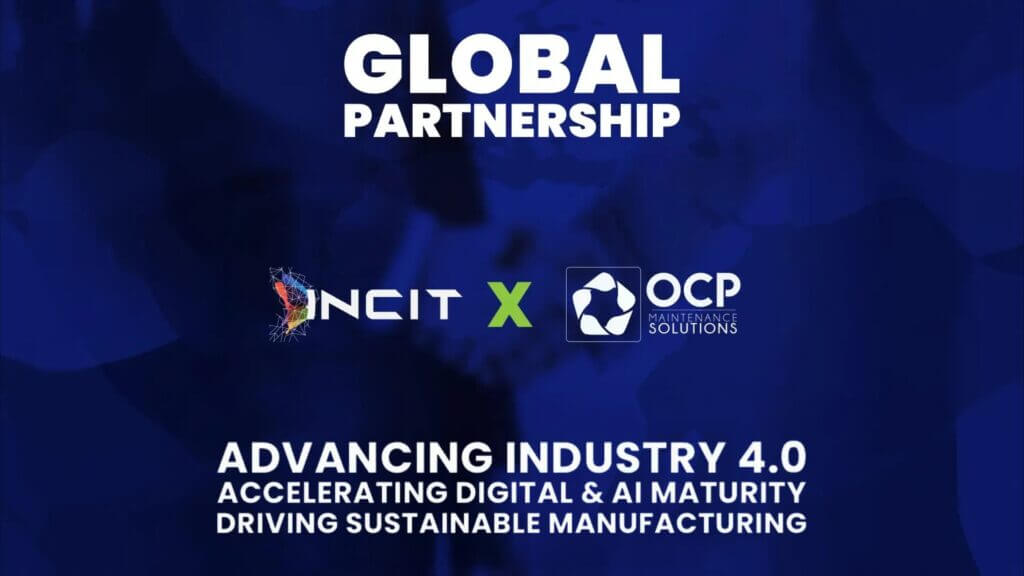
INCITとOCP Maintenance Solutions、モロッコの産業変革推進に向けた戦略的提携を締結 国際産業変革センター(INCIT)は、モロッコおよびアフリカ地域全体における産業の成熟度と競争力の向上を支援するため、OCP Maintenance Solutionsとの戦略的提携を締結したことを発表いたします。この提携は、INCITの世界的に評価の高い産業評価フレームワークとOCP Maintenance Solutionsの地域および産業に関する専門知識を融合させ、製造業者のデジタル変革、オペレーショナル・エクセレンス、人工知能(AI)導入、そして持続可能性の実現を支援します。この提携を通じて、INCITの国際的に認められた準備度と成熟度指標、スマートインダストリー準備度指標(SIRI)、オペレーショナル・エクセレンス準備度指標(OPERI)、産業人工知能成熟度準備度指標([…]
Prioritise+マーケットプレイス: InnoSphereとManuVateが提供するメーカーに特化したマッチメイキングプラットフォーム
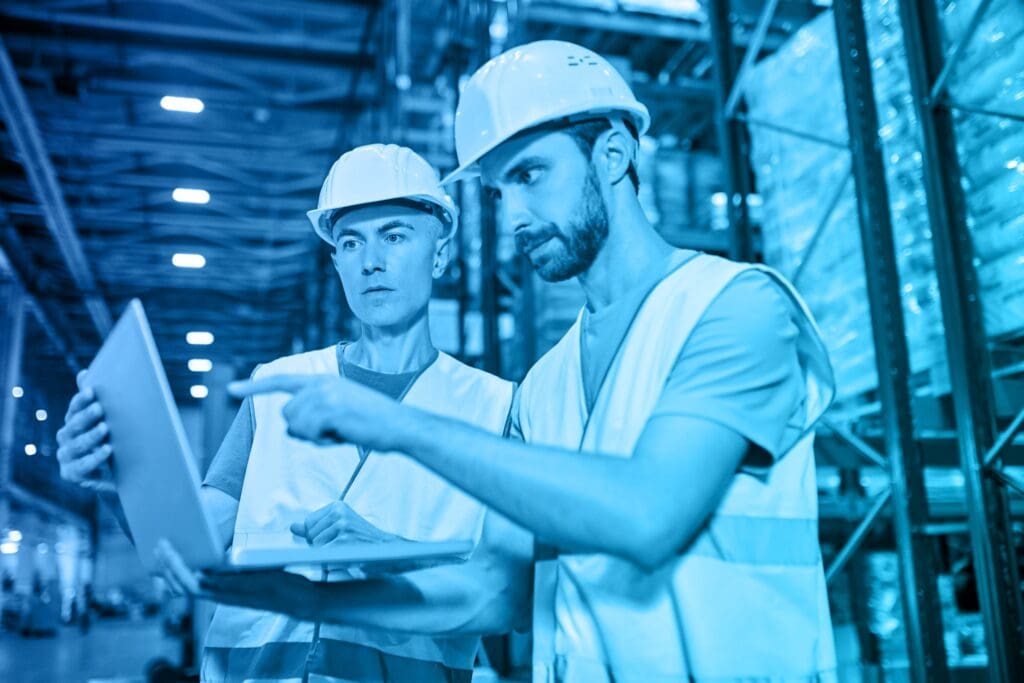
今日、製造業のリーダーが直面する根深い障害の一つは、何を変え、改善し、進化させる必要があるかを評価した後で発生します。OPERI、SIRI、COSIRIといった主要な優先順位付け指標を用いて評価を行うことで、自社の強み、弱み、そして次の優先事項を明確に把握することができます。しかし、得られた洞察を適切なパートナーやツールとマッチングさせる実行層がなければ、変革への取り組みは勢いを失うリスクがあります。製造業のリーダーは、常に同じ2つの問題に直面しています。1つ目は、こうしたギャップを埋めるためのソリューションがどのようなものか把握できていないことです。2つ目は、利用可能なデジタルツールキットやソリューションを認識している企業であっても、[…]
レッドオーシャンを生き抜く:中小製造企業のための実践的ロードマップ
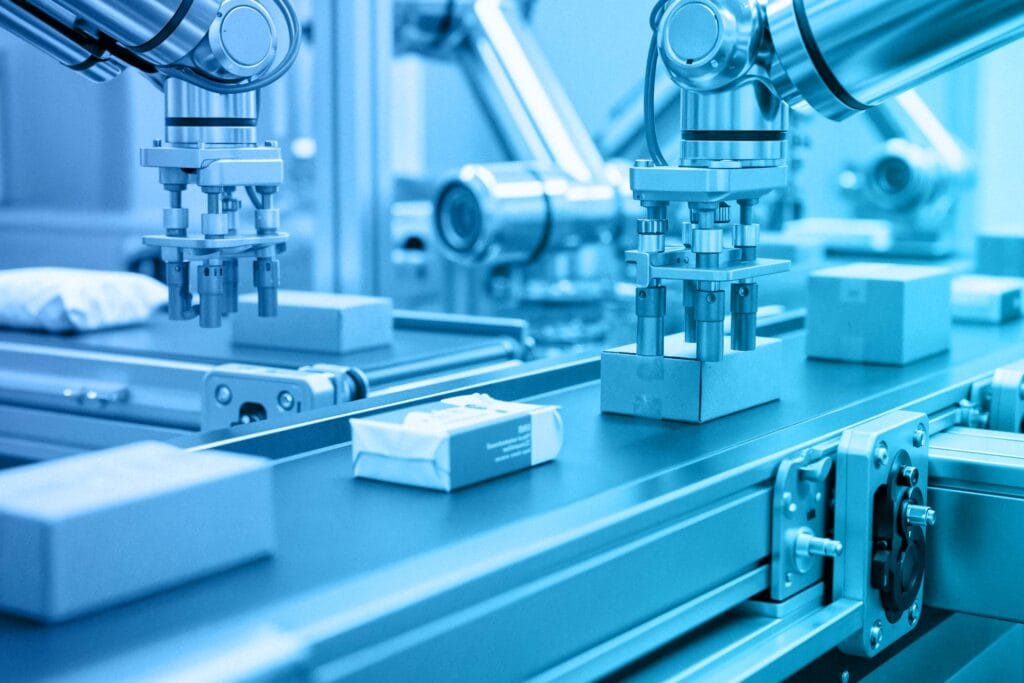
中小製造業者の厳しい現実 中小製造業者は常に厳しい状況に置かれてきました。しかし、競争が熾烈で、利益率が低く、ルールが常に変化し続ける今日のレッドオーシャン市場では、生き残ることさえ成功のように感じられるようになっています。膨大なリソースと規模の経済性を活用する大手多国籍企業(MNC)が支配するこの熾烈な競争環境は、中小製造業者を不安定な立場に追い込んでいます。残念ながら、生き残るだけでは十分ではありません。これらの企業が生き残り、未来を築くためには、彼らの仕事のやり方、つまりペースが速く、リソースが限られており、デジタル変革の課題では見過ごされがちなやり方に適した構造とツールが必要です。その可能性は極めて低いです。米国だけでも、[…]
王国の産業変革を推進:第2回キングダム製造4.0カンファレンスにおけるINCIT

2025年5月26日~27日、第2回Kingdom Manufacturing 4.0カンファレンスがサウジアラビアのリヤドで開催され、「今日の工場を変革し、明日の成功を目指す」というスローガンの下、世界の思想的リーダーたちが一堂に会し、産業における卓越性の次なるフロンティアを探りました。2日間にわたるこのイベントは、イノベーション、デジタルトランスフォーメーション、そして持続可能な製造業を通じて、サウジアラビアのビジョン2030の目標を加速させるための戦略的プラットフォームとなりました。国際産業変革センター(INCIT)を代表して、最高執行責任者(COO)のジェスモンド・ホン博士は、講演者およびモデレーターとしてプログラムの中心的役割を果たし、スマート製造業と産業のレジリエンスに関する議論を活発化させました。評価から実装へ:産業の備えに向けたロードマップの策定 ホン博士は、「スマートインダストリー[…]
イノベーションを受け入れる:メーカーとサプライヤーがお互いを見つける方法

ガートナーは今年、サプライヤーとバイヤー間のB2B販売インタラクションの80%がデジタルチャネルを通じて行われると予測しており、インダストリー4.0のスマートテクノロジーの評価と購入が進化していることを浮き彫りにしています。これは新たな標準となりつつありますが、必ずしも順風満帆というわけではありません。ガートナーの報告によると、購買力を握るチームのほぼ4分の3(74%)が「不健全な対立」を経験しており、これは関係者間の連携強化だけでなく、関係者間の連携、コミュニケーション、意思決定フレームワークの改善の必要性を浮き彫りにしています。製造業において、スマート製造ソリューションのバイヤージャーニーは決して単純なものではありませんが、適切なソリューションを確実に導入するために、このビジネス領域をどのように進めていくべきでしょうか?[…]
貴社の製造部門はインダストリー X.0 への対応準備ができていますか、それともただ話しているだけですか?

ますます不安定化する世界情勢の中、製造業は重大な岐路に立たされています。パンデミック、気候変動、地政学的緊張、そして加速する技術革新によって引き起こされた混乱は、脆弱性を露呈させただけでなく、変革の緊急性を浮き彫りにしました。レジリエンス(回復力)と長期的な競争力の構築を目指す製造業にとって、デジタル化はもはや戦略的な選択肢ではなく、必須事項となっています。この複雑な環境を乗り越えるべく、業界のステークホルダーの皆様を支援するため、最新のホワイトペーパー「グローバル・スマート・インダストリー・レディネス・インデックス(SIRI)イニシアチブ:製造業変革インサイト・レポート2025」を公開いたします。このレポートは、60カ国以上にわたる数千の製造企業からのデータに基づく洞察を提供し、グローバルな[…]
グローバルスマートインダストリー準備指数(SIRI)イニシアチブ:製造業変革インサイトレポート2025

サプライチェーンの混乱、気候変動対策、急速な技術革新など、製造業は世界的なプレッシャーの高まりに直面しており、変革はもはや選択肢ではありません。このホワイトペーパーでは、60カ国以上の数千社の製造企業から得られた知見を紹介し、業界を形作る主要なトレンドと、戦略ビジョンと業務遂行の間に存在する重大なギャップを明らかにしています。スマートインダストリー準備指数(SIRI)ホワイトペーパー2025 スマートインダストリー準備指数(SIRI)などのフレームワークが、製造業がこのギャップを埋め、レジリエンスを構築し、デジタルトランスフォーメーションを通じて持続可能な成長を促進する上でどのように役立っているかをご覧ください。
産業におけるAI変革の先駆者:トルコと世界初

世界初となる産業AI成熟度評価(AIMRI)を無事完了したことを誇りに思います。これはトルコにおいても初の試みとなります。この評価は、共同開発したAIMRIフレームワークを用いて、2025年5月26~27日にViessmann社で実施されました。この画期的な取り組みにより、私たちは単なる準備状況の評価にとどまらず、Viessmann社独自の産業オペレーションに合わせた優先順位付けされたAIロードマップを共同で作成しました。これは、多くの人が依然として抱えている「AIをどこから、どのように導入すべきか」という問いに答えるものです。技術的な洞察にとどまらず、この評価はチーム間で有意義な議論を促し、AIの役割に関する斬新で実践的な視点をもたらしました。[…]
推測をやめて、理解し始めましょう。なぜベンチマークはすべての製造業にとって最優先事項であるべきなのか

今日の不安定な環境において競争力を維持するためには、製造業は競合他社と比較して自社の優位性を把握する必要があります。そのためには、健全な利益率を維持するだけでなく、規律と自覚が求められます。ベンチマーキングは、これらの企業が業界のパフォーマンス基準を満たす上で重要な要素ですが、厳しい利益率とグローバル競争の中で生き残るメーカーにとって、成功と衰退を分ける鍵となる可能性があります。「製造システム:世界クラスの実践の基盤」(米国科学・工学・医学アカデミー)によると、ベンチマーキングとは、自社の現在のパフォーマンスを世界トップ企業と定量的に比較することであり、あらゆる製造業の成功にとって「不可欠な基盤」です。また、競合他社の特定に役立つ実用的なツールとしても機能します。[…]
2025年の製造業の未来を形作る持続可能な取り組みトップ3

製造業は、かつてないほど大きな岐路に立たされています。事業活動全体にサステナビリティを組み込むか、それとも何もしなければ悲惨な結末を迎えるかという、高まるプレッシャーに直面しているからです。気候変動の容赦ない進行と天然資源の枯渇が従来の製造業の慣行に暗い影を落としている今、CEOは、高額な初期コスト、サプライチェーンの見直しに伴う複雑さ、そして進化する規制要件への準拠といった大きな課題を乗り越えながら、事業全体にサステナブルなアプローチを導入するために尽力しなければなりません。しかし、革新的な戦略を採用する行動をとる製造業のリーダーは、効率性を高め、サステナビリティを推進するだけでなく、最終的には目標達成に向けた取り組みの中で事業成長の恩恵を受けることができます。[…]
製造業におけるオペレーションの卓越性を実現する方法 – CEO向けロードマップ

イノベーションと破壊的変化が顕著な時代において、製造業のリーダー企業は、不安定な財務状況、高騰する原材料費、世界的なサプライチェーンの混乱、労働力不足、そして技術革新の遅れといった、相互に関連した課題への対応に苦慮しています。これらはすべて収益を脅かし、CEOは行動を迫られています。製造オペレーションにおいて現状維持はもはや選択肢ではありません。これは特に中小零細企業(MSME)に当てはまります。当社が最近実施した調査によると、米国のMSMEの50%が設立後5年以内に廃業しています。中小企業は、この危機を乗り切るためにさらに苦闘しており、経営者やリーダーはより大きなプレッシャーに直面しています。[…]
2025年に注目すべき製造業の5つのトレンド

2024年を特徴づけるトレンドを振り返ると、製造業が転換点を迎えていることが分かります。デジタル化、破壊的技術、オペレーショナル・エクセレンス、ESGパフォーマンスなど、あらゆる面での進歩に重点が置かれる中、CEOはレガシーシステム、インフラ、そして時代遅れの業務慣行への対応といった重要な課題を克服しなければなりません。これらの分野における進歩は極めて重要であり、特に2025年は段階的な変革の年になると予想されています。段階的な変化ではもはや不十分であり、パフォーマンスの大幅な向上が求められ、インダストリー4.0の実現だけでなく、インダストリー5.0への対応も必要となるからです。[…]
INCITとAIDSMO:産業革新と成長のための戦略的パートナーシップ

アラブ工業開発・標準化・鉱業機構(AIDSMO)執行理事会第66回会合が、2024年11月19日から21日までモロッコのアガディールで開催されました。この会合には11カ国のアラブ諸国から代表団が集まり、この地域における産業振興、標準化、そして経済発展への継続的な取り組みが強調されました。会合の大きなハイライトは、国際産業変革センター(INCIT)の最高執行責任者であるジェスモンド・ホン博士の参加でした。ホン博士の関与は、アラブ地域全体の産業変革を促進する上での国際協力の重要性を象徴するものでした。会合中、AIDSMO事務局長のアデル・アル・サクル氏(Eng. Adel Al-Saqr)は、ホン博士と、アラブ地域における産業変革を促進するための重要な協力協定に署名しました。この協定は、[…]
足元に潜む危機 ― 製造業における土壌汚染

国連(UN)によると、土壌汚染は地球上の生命を「危険にさらしている」とされ、製造業は世界的に土壌汚染の最大の要因の一つとなっています。しかし、製造業は、汚染源の複雑さ、技術的に困難で費用のかかる修復プロセス、そして同時に操業効率の確保といった理由から、土壌汚染への効果的な対処において大きな課題に直面しています。土壌汚染は製造業によって現れ方が異なり、様々な形で土壌問題に寄与しています。ガーディアン紙の報道によると、繊維業界では、ファストファッションの供給過剰問題が有害な化学物質の土壌への放出につながり、売れ残った衣類がしばしば埋め立て地に捨てられています。電子機器製造業界では、鉛などの危険な物質の不適切な投棄が土壌汚染を引き起こしています[…]
バランスをとる:製造業における責任ある土地利用のための5つの戦略
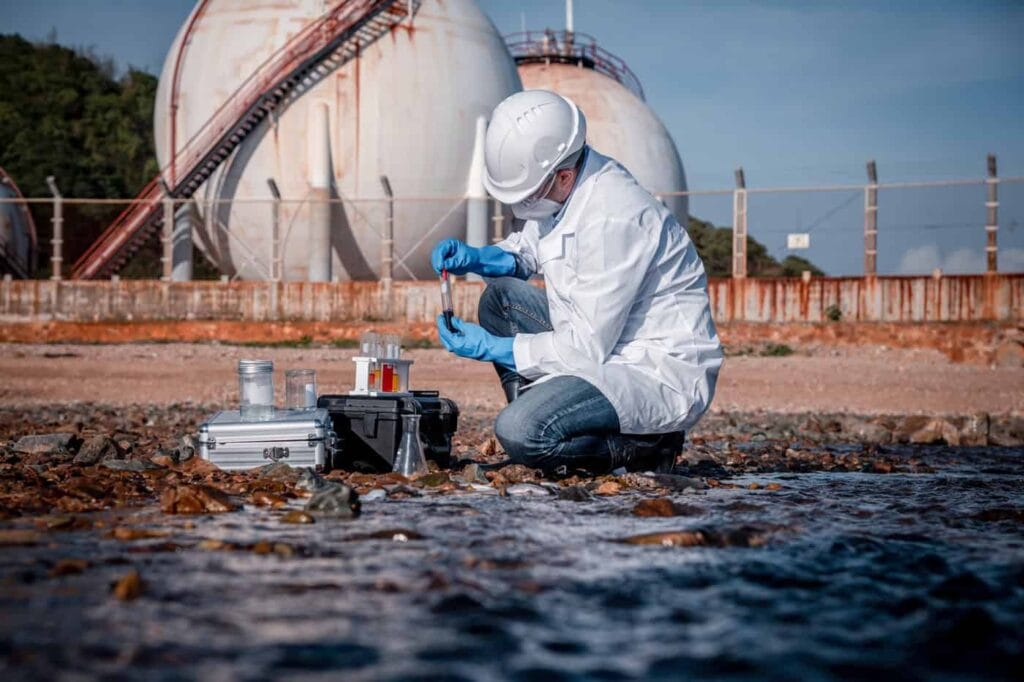
地球の土地は有限な資源です。私たちの行動や慣習が及ぼす影響、そして未来の世代に土地をどのような状態で残していくかについては、歴史的にほとんど考慮されてきませんでした。しかし、今、その状況は変わりつつあります。世界的な製品需要の増加に伴い、製造業の勢いはすぐに衰える気配がありません。しかし、依然として世界最大の汚染源の一つであり続けています。また、製造業は前向きな変化を推進し、母なる地球を守る上で重要な役割を果たしています。リーダーたちは、事業活動における土地の活用方法を含め、環境負荷の低減に向けて自ら率先して変化を起こすことができます。製造業へのプレッシャーは、今後も続くでしょう。[…]
公平な気候ソリューションの製造:リスクと持続可能性のバランス

2020年代も半ばに差し掛かり、CEOは環境に配慮した取り組みを優先するか、それとも後れを取るリスクを負うかといった、重要な選択に直面し続けています。製造業のCEOは、気候変動に真正面から取り組むために、気候リスク管理と環境正義のバランスを取った包括的かつ統合的なアプローチを採用する必要があります。環境正義とは、人種、肌の色、出身地、収入に関わらず、環境ハザードからの平等な保護と、すべての人々が意思決定に参加できる機会を確保すること、汚染に対処し、きれいな空気と水へのアクセスを確保することを意味します。世界最大の汚染セクターであり、世界の炭素排出量の5分の1を占める製造業は、環境正義と気候変動の移行を同時に進めることで、持続可能性の課題を推進する上で重要な役割を果たしています。しかしながら、気候変動は[…]
インダストリー4.0が東南アジアの製造業の将来性にどのように貢献できるか

ダイナミックで絶えず進化を続ける製造業の世界において、インダストリー4.0は世界規模で変革の指標として位置づけられており、特に新興経済国であり、革新的な技術によって急速な発展を促進できる東南アジアにおいてその重要性は高まっています。先日配信されたポッドキャスト「The Deep Dive」で、アルバレス・アンド・マーサルの東南アジアおよびアジア太平洋地域担当シニアディレクターのティンフェン・イェ氏と、国際産業変革センター(INCIT)の最高経営責任者(CEO)兼創設者であるライムンド・クライン氏が、東南アジアの製造業全体におけるインダストリー4.0の変革効果と、業界の成長を牽引する重要な技術進歩について議論しました。また、トップクラスの多国籍企業(MNC)と中小企業の業務運営と戦略における違いについても言及しました。[…]
風評リスク:倫理的な製造がESGの進歩に不可欠な理由

ビジネス目標と持続可能な目標に整合した、堅牢で効果的な環境・社会・ガバナンス(ESG)フレームワークを構築することは容易ではありません。これは非常に微妙な問題であり、すべての製造業者が綿密に取り組む必要があります。環境負荷と労働者への社会的影響をより適切に管理するよう求める社会からの圧力が強まっているため、製造業は業界として、事業運営とデジタルサプライチェーンにESG原則を緊急に統合する責務を負っています。ガートナーの報告によると、世界的に製造業は世界の排出量の約50%を占め、運輸部門と合わせると最大の排出量の一つとなっています。しかし、製造業には排出量以外にも様々な落とし穴があります[…]
製造業の持続可能性のためのデジタルファイナンスは実現可能でしょうか?
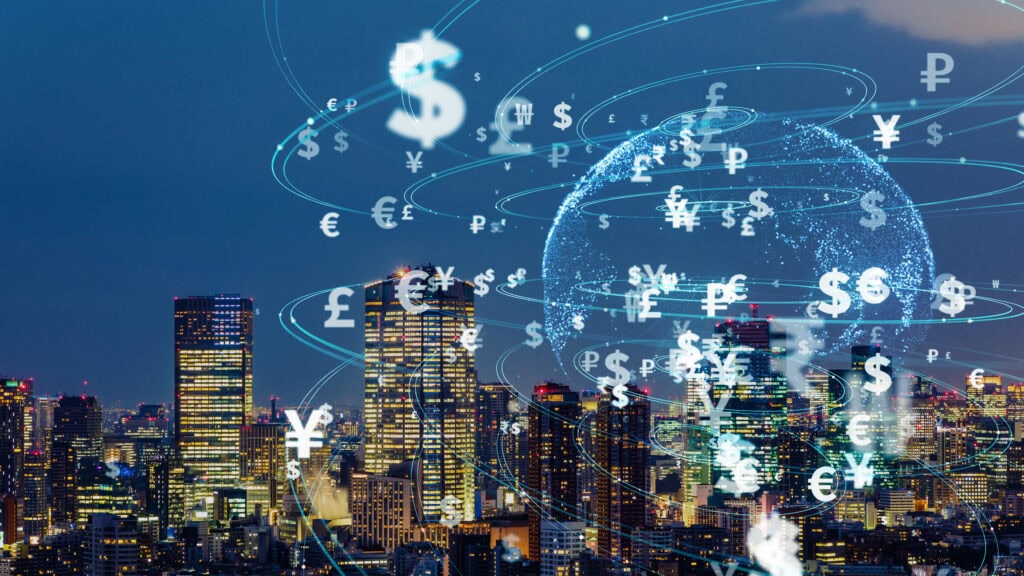
お金はもはや現金や硬貨だけではありません。今日では、現金よりもデジタル取引の事例が増えており、現金の使用は年々減少しています。デジタルソリューションの導入拡大は、金融環境を必然的に変化させ、世界中の産業界が事業戦略を支援するために新たなデジタルファイナンスの選択肢を導入するようになりました。持続可能性と環境・社会・ガバナンス(ESG)は、世界中の製造企業にとって今や重要な考慮事項であり、製造業者は持続可能性への取り組みを支援するためにデジタルファイナンスにますます注目しています。デジタルファイナンス(オンラインファイナンスとも呼ばれる)とは、融資、投資、資金調達などの金融取引を促進するためにデジタルプラットフォームとテクノロジーを活用することを指します。この資金調達方法は[…]
2024年の展望:注目すべき製造業の5つのトレンド

2023年、製造業は地政学的不安定性、人材不足、サプライチェーンの混乱など、様々な大きな課題に直面し、業界全体の混乱をさらに悪化させました。しかし、これらの困難にもかかわらず、製造業はデジタル化と持続可能な発展へのコミットメントを維持しており、私たちも業界がこれらの重要な目標を達成できるよう支援することに尽力しています。過去12ヶ月間、私たちは、製造現場のインテリジェンスの向上、循環型経済の創出、フェアトレード製造の重要性、デジタルサプライチェーンの台頭、マイクロファクトリーの可能性、AIとハイパーオートメーション、サイバーレジリエンスの強化、ハイパーパーソナライゼーションが製造業を変える理由、そしてジェネレーティブAIとインダストリアルメタバースなど、業界全体にとって重要なトピックをいくつか取り上げました。私たちは、重要な[…]
AIとハイパーオートメーションが持続可能な製造業を推進する方法

自動化はビジネスを永遠に変えました。プロセスの合理化と新たな運用効率の創出により、製造業は他の多くの業界と同様に、自動化を業務の中核として取り入れてきました。自動化が前例のない変化を引き起こしたことは否定できませんが、ハイパーオートメーションは変革を全く新しいレベルへと引き上げます。近年の人工知能(AI)と機械学習の劇的な発展は、製造業におけるハイパーオートメーションの成長を促し、ハイパーオートメーション市場は2028年までに1兆5,822億米ドルに達すると予測されています。Salesforceの調査によると、5社中4社が2024年までにハイパーオートメーションを技術ロードマップに組み込む予定であることが分かりました。高度な自動化ツールは効果的にプロセス効率を高めますが、[…]
最先端のデータ分析:なぜ新しい技術だけでは未来の工場を活性化できないのか

データは、シンプルな集計マーカーやメモから複雑なスプレッドシートやクラウドストレージまで、何世紀にもわたって様々な形で収集され、プロセスに不可欠な要素となってきました。今日、作成・保存される複雑なデータ、いわゆるビッグデータの量と量は驚異的で、1日あたり推定25億ギガバイトが生成されています。製造業では、人工知能(AI)、機械学習(ML)、モノのインターネット(IoT)デバイスなどの、よりスマートで相互接続された技術が業務システムに統合され、作成・配信されるデータの量が急速に増加しています。しかし、ビッグデータの活用と分析を十分に理解していなければ、データは[…]
フェアトレード製造とは何か、そしてそれが地球規模の持続可能性にとってなぜ重要なのか?

フェアトレード製造運動は、持続可能な生活を促進する厳格な基準を推進しています。安全な労働条件、環境保護、そしてより強固で透明性の高いサプライチェーンの構築を提唱しています。この運動は、搾取労働などの搾取的慣行の犠牲者となった可能性のある発展途上国の労働者にとって特に重要です。2013年にバングラデシュで発生したラナプラザ崩壊事故など、他の事件も、多くの国の労働者が直面している危険な労働条件を浮き彫りにしています。人的被害に加え、環境保護もフェアトレード製造に深く根付いています。気候変動が悪化する中、製造業者はフェアトレード製造を導入し、自らの役割を果たす必要があります。[…]
APAC ネットワークインタビュー: 製造業は気候変動の課題に立ち向かえるか?

世界の温室効果ガス排出量の3分の2は製造業が占めており、製造業企業は持続可能性に関する目標と取り組みを再評価し、排出量削減のための新たな方法を見出す必要があります。持続可能性への関心の高まりは製造業におけるイノベーションを促し、リマニュファクチャリングや人工知能といった先進的なソリューションの活用を促進し、多くの企業の環境対策を後押ししています。しかし、世界の製造業が持続可能性の目標を達成し、ネットゼロを達成するには、まだ多くの課題が残されています。製造業に関する最新の知見と、製造業がイノベーションをさらに推進する方法を探るため、INCIT CEOのライムンド・クライン氏と、INCIT取締役兼COOのフランシスコ・ベッティ氏が講演しました。[…]